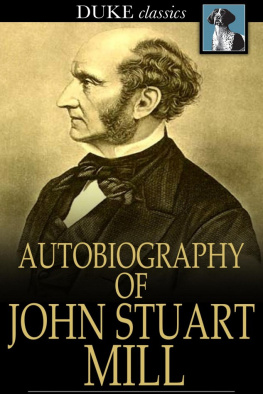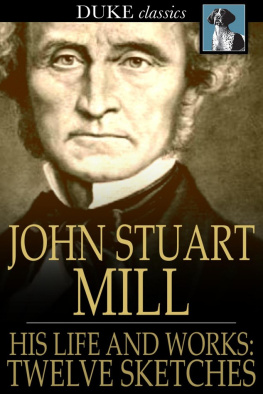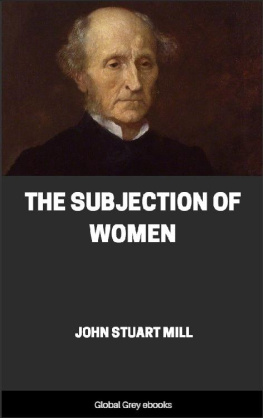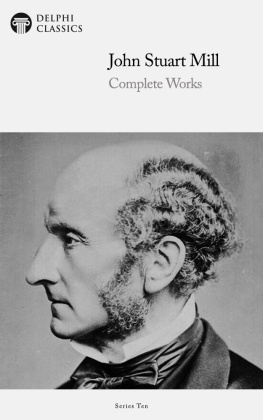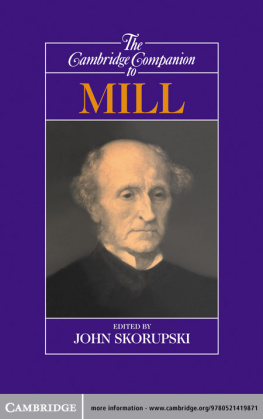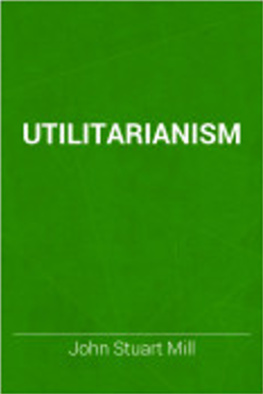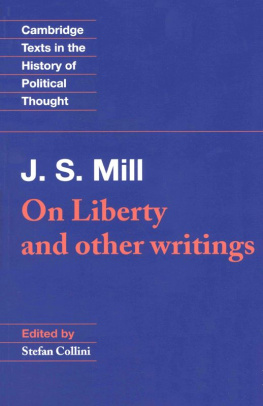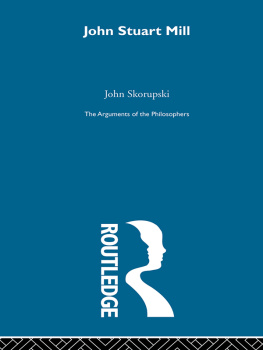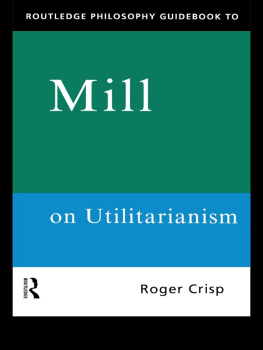Mill John Stuart - Auguste Comte and Positivism
Here you can read online Mill John Stuart - Auguste Comte and Positivism full text of the book (entire story) in english for free. Download pdf and epub, get meaning, cover and reviews about this ebook. genre: Science. Description of the work, (preface) as well as reviews are available. Best literature library LitArk.com created for fans of good reading and offers a wide selection of genres:
Romance novel
Science fiction
Adventure
Detective
Science
History
Home and family
Prose
Art
Politics
Computer
Non-fiction
Religion
Business
Children
Humor
Choose a favorite category and find really read worthwhile books. Enjoy immersion in the world of imagination, feel the emotions of the characters or learn something new for yourself, make an fascinating discovery.
- Book:Auguste Comte and Positivism
- Author:
- Genre:
- Rating:3 / 5
- Favourites:Add to favourites
- Your mark:
- 60
- 1
- 2
- 3
- 4
- 5
Auguste Comte and Positivism: summary, description and annotation
We offer to read an annotation, description, summary or preface (depends on what the author of the book "Auguste Comte and Positivism" wrote himself). If you haven't found the necessary information about the book — write in the comments, we will try to find it.
Auguste Comte and Positivism — read online for free the complete book (whole text) full work
Below is the text of the book, divided by pages. System saving the place of the last page read, allows you to conveniently read the book "Auguste Comte and Positivism" online for free, without having to search again every time where you left off. Put a bookmark, and you can go to the page where you finished reading at any time.
Font size:
Interval:
Bookmark:
Project Gutenberg's August Comte and Positivism, by John-Stuart Mill
This eBook is for the use of anyone anywhere at no cost and with
almost no restrictions whatsoever. You may copy it, give it away or
re-use it under the terms of the Project Gutenberg License included
with this eBook or online at www.gutenberg.net
Title: August Comte and Positivism
Author: John-Stuart Mill
Release Date: October 9, 2005 [EBook #16833]
Language: English
*** START OF THIS PROJECT GUTENBERG EBOOK AUGUST COMTE AND POSITIVISM ***
Produced by Marc D'Hooghe
For some time much has been said, in England and on the Continent, concerning "Positivism" and "the Positive Philosophy." Those phrases, which during the life of the eminent thinker who introduced them had made their way into no writings or discussions but those of his very few direct disciples, have emerged from the depths and manifested themselves on the surface of the philosophy of the age. It is not very widely known what they represent, but it is understood that they represent something. They are symbols of a recognised mode of thought, and one of sufficient importance to induce almost all who now discuss the great problems of philosophy, or survey from any elevated point of view the opinions of the age, to take what is termed the Positivist view of things into serious consideration, and define their own position, more or less friendly or hostile, in regard to it. Indeed, though the mode of thought expressed by the terms Positive and Positivism is widely spread, the words themselves are, as usual, better known through the enemies of that mode of thinking than through its friends; and more than one thinker who never called himself or his opinions by those appellations, and carefully guarded himself against being confounded with those who did, finds himself, sometimes to his displeasure, though generally by a tolerably correct instinct, classed with Positivists, and assailed as a Positivist. This change in the bearings of philosophic opinion commenced in England earlier than in France, where a philosophy of a contrary kind had been more widely cultivated, and had taken a firmer hold on the speculative minds of a generation formed by Royer-Collard, Cousin, Jouffroy, and their compeers. The great treatise of M. Comte was scarcely mentioned in French literature or criticism, when it was already working powerfully on the minds of many British students and thinkers. But, agreeably to the usual course of things in France, the new tendency, when it set in, set in more strongly. Those who call themselves Positivists are indeed not numerous; but all French writers who adhere to the common philosophy, now feel it necessary to begin by fortifying their position against "the Positivist school." And the mode of thinking thus designated is already manifesting its importance by one of the most unequivocal signs, the appearance of thinkers who attempt a compromise or juste milieu between it and its opposite. The acute critic and metaphysician M. Taine, and the distinguished chemist M. Berthelot, are the authors of the two most conspicuous of these attempts.
The time, therefore, seems to have come, when every philosophic thinker not only ought to form, but may usefully express, a judgment respecting this intellectual movement; endeavouring to understand what it is, whether it is essentially a wholesome movement, and if so, what is to be accepted and what rejected of the direction given to it by its most important movers. There cannot be a more appropriate mode of discussing these points than in the form of a critical examination of the philosophy of Auguste Comte; for which the appearance of a new edition of his fundamental treatise, with a preface by the most eminent, in every point of view, of his professed disciples, M. Littr, affords a good opportunity. The name of M. Comte is more identified than any other with this mode of thought. He is the first who has attempted its complete systematization, and the scientific extension of it to all objects of human knowledge. And in doing this he has displayed a quantity and quality of mental power, and achieved an amount of success, which have not only won but retained the high admiration of thinkers as radically and strenuously opposed as it is possible to be, to nearly the whole of his later tendencies, and to many of his earlier opinions. It would have been a mistake had such thinkers busied themselves in the first instance with drawing attention to what they regarded as errors in his great work. Until it had taken the place in the world of thought which belonged to it, the important matter was not to criticise it, but to help in making it known. To have put those who neither knew nor were capable of appreciating the greatness of the book, in possession of its vulnerable points, would have indefinitely retarded its progress to a just estimation, and was not needful for guarding against any serious inconvenience. While a writer has few readers, and no influence except on independent thinkers, the only thing worth considering in him is what he can teach us: if there be anything in which he is less wise than we are already, it may be left unnoticed until the time comes when his errors can do harm. But the high place which M. Comte has now assumed among European thinkers, and the increasing influence of his principal work, while they make it a more hopeful task than before to impress and enforce the strong points of his philosophy, have rendered it, for the first time, not inopportune to discuss his mistakes. Whatever errors he may have fallen into are now in a position to be injurious, while the free exposure of them can no longer be so.
We propose, then, to pass in review the main principles of M. Comte's philosophy; commencing with the great treatise by which, in this country, he is chiefly known, and postponing consideration of the writings of the last ten years of his life, except for the occasional illustration of detached points.
When we extend our examination to these later productions, we shall have, in the main, to reverse our judgment. Instead of recognizing, as in the Cours de Philosophic Positive, an essentially sound view of philosophy, with a few capital errors, it is in their general character that we deem the subsequent speculations false and misleading, while in the midst of this wrong general tendency, we find a crowd of valuable thoughts, and suggestions of thought, in detail. For the present we put out of the question this signal anomaly in M. Comte's intellectual career. We shall consider only the principal gift which he has left to the world, his clear, full, and comprehensive exposition, and in part creation, of what he terms the Positive Philosophy: endeavouring to sever what in our estimation is true, from the much less which is erroneous, in that philosophy as he conceived it, and distinguishing, as we proceed, the part which is specially his, from that which belongs to the philosophy of the age, and is the common inheritance of thinkers. This last discrimination has been partially made in a late pamphlet, by Mr Herbert Spencer, in vindication of his own independence of thought: but this does not diminish the utility of doing it, with a less limited purpose, here; especially as Mr Spencer rejects nearly all which properly belongs to M. Comte, and in his abridged mode of statement does scanty justice to what he rejects. The separation is not difficult, even on the direct evidence given by M. Comte himself, who, far from claiming any originality not really belonging to him, was eager to connect his own most original thoughts with every germ of anything similar which he observed in previous thinkers.
Font size:
Interval:
Bookmark:
Similar books «Auguste Comte and Positivism»
Look at similar books to Auguste Comte and Positivism. We have selected literature similar in name and meaning in the hope of providing readers with more options to find new, interesting, not yet read works.
Discussion, reviews of the book Auguste Comte and Positivism and just readers' own opinions. Leave your comments, write what you think about the work, its meaning or the main characters. Specify what exactly you liked and what you didn't like, and why you think so.







